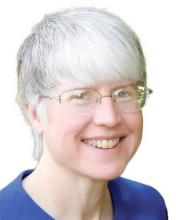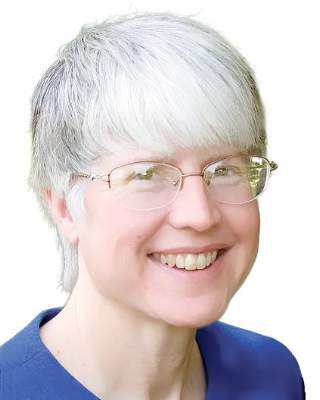User login
On Thursday, Oct. 22, the American Academy of Psychiatry and the Law begins its 46th annual meeting in Fort Lauderdale, Fla. Covering a myriad of topics related to both civil and criminal issues, each year a diverse group of international forensic psychiatrists meet to share experiences and stay current with emerging developments.
For the first time, the academy (also known as AAPL or “Apple”) will share this experience with the world. Using a mobile live streaming technology known as Meerkat, viewers will be able to watch presentations by panels of renowned forensic psychiatrists ranging from a presidential address entitled “Witness Protection Program: A Matter of Training,” on Thursday morning, to a panel discussion of the role of forensic psychiatry in the death penalty on Sunday morning. Viewers also will be able to take part in the discussion and ask questions live, either through Meerkat or Twitter.
To take part, download the Meerkat app from your respective app store. It’s free, and there are versions for both iPhone and Android. Log in with either Facebook or Twitter, then search for the AAPL stream “AAPL2015.” Volunteers at the presentation will be monitoring Meerkat interactions and accepting questions. Discussion also will take place on Twitter using the hashtag #AAPL2015 and a session-specific tag announced at the beginning of the presentation.
This year, one theme of the conference is medical education and, specifically, innovative ways to teach forensic psychiatry to general psychiatry residents and fellows. The use of social media at this conference is one example of this. Given that many residency programs do not have a board-certified forensic psychiatrist on faculty, remote viewing of lectures and conferences might be one solution for programs that are having difficulty meeting this Accreditation Council for Graduate Medical Education–required training content.
A full schedule of planned broadcasts, along with the approximate broadcast times, is available on the AAPL conference web page.
Here is a sample of some of the panel topics:
• The New APA Guidelines on Correctional Psychiatry
• The Psychiatrist in Peril: Current Topics in Malpractice
• Novel Approach to Teaching Residents About Violence and Safety
• The Relationship Between Mental Illness and Violence
• Adolescents and Social Media: Privacy, Brain Development, and Law
• Treatment of Transgender Inmates
• Educational Factors Contributing to Juvenile Delinquency
• Role of Forensic Psychiatry in Veteran Evaluations
• Myths and Realities of Women in Prison
• What Gets Judges in Trouble?
• Forensic Issues in Emergency Psychiatry
• TBI Update: International Collaboration on mTBI and DSM-5
• Forensic Psychiatry and the Death Penalty
• Rock and a Hard Place: Debating Sexual Sadism Diagnosis
Some psychiatry residents might imagine forensic psychiatry to be merely the provision of expert testimony, so I hope this conference expands that image to include the entire spectrum of potential forensic practice. AAPL traditionally has supported ready access to training in forensic psychiatry. Its affiliated quarterly publication, the Journal of the American Academy of Psychiatry and the Law, is one of the few peer-reviewed academic medical journals to remain free and open to the public. This publication contains scholarly articles dealing with the theory and practice of forensic psychiatry and related fields. In addition, the AAPL newsletter regularly provides updates of recent significant legal cases pertinent to the practice of psychiatry and updates on important legislative issues. Our members, through the APA’s Council on Psychiatry and Law, have helped the American Psychiatric Association address important issues related to mental health law and national policy involving psychiatric patients.
On behalf of the organization I would like to extend a welcome to our viewers and the general public: “Hello world!”
Dr. Hanson is a forensic psychiatrist and coauthor of Shrink Rap: Three Psychiatrists Explain Their Work. The opinions expressed are those of the author only and do not represent those of any of Dr. Hanson’s employers or consultees, including the Maryland Department of Health and Mental Hygiene or the Maryland Division of Correction.
On Thursday, Oct. 22, the American Academy of Psychiatry and the Law begins its 46th annual meeting in Fort Lauderdale, Fla. Covering a myriad of topics related to both civil and criminal issues, each year a diverse group of international forensic psychiatrists meet to share experiences and stay current with emerging developments.
For the first time, the academy (also known as AAPL or “Apple”) will share this experience with the world. Using a mobile live streaming technology known as Meerkat, viewers will be able to watch presentations by panels of renowned forensic psychiatrists ranging from a presidential address entitled “Witness Protection Program: A Matter of Training,” on Thursday morning, to a panel discussion of the role of forensic psychiatry in the death penalty on Sunday morning. Viewers also will be able to take part in the discussion and ask questions live, either through Meerkat or Twitter.
To take part, download the Meerkat app from your respective app store. It’s free, and there are versions for both iPhone and Android. Log in with either Facebook or Twitter, then search for the AAPL stream “AAPL2015.” Volunteers at the presentation will be monitoring Meerkat interactions and accepting questions. Discussion also will take place on Twitter using the hashtag #AAPL2015 and a session-specific tag announced at the beginning of the presentation.
This year, one theme of the conference is medical education and, specifically, innovative ways to teach forensic psychiatry to general psychiatry residents and fellows. The use of social media at this conference is one example of this. Given that many residency programs do not have a board-certified forensic psychiatrist on faculty, remote viewing of lectures and conferences might be one solution for programs that are having difficulty meeting this Accreditation Council for Graduate Medical Education–required training content.
A full schedule of planned broadcasts, along with the approximate broadcast times, is available on the AAPL conference web page.
Here is a sample of some of the panel topics:
• The New APA Guidelines on Correctional Psychiatry
• The Psychiatrist in Peril: Current Topics in Malpractice
• Novel Approach to Teaching Residents About Violence and Safety
• The Relationship Between Mental Illness and Violence
• Adolescents and Social Media: Privacy, Brain Development, and Law
• Treatment of Transgender Inmates
• Educational Factors Contributing to Juvenile Delinquency
• Role of Forensic Psychiatry in Veteran Evaluations
• Myths and Realities of Women in Prison
• What Gets Judges in Trouble?
• Forensic Issues in Emergency Psychiatry
• TBI Update: International Collaboration on mTBI and DSM-5
• Forensic Psychiatry and the Death Penalty
• Rock and a Hard Place: Debating Sexual Sadism Diagnosis
Some psychiatry residents might imagine forensic psychiatry to be merely the provision of expert testimony, so I hope this conference expands that image to include the entire spectrum of potential forensic practice. AAPL traditionally has supported ready access to training in forensic psychiatry. Its affiliated quarterly publication, the Journal of the American Academy of Psychiatry and the Law, is one of the few peer-reviewed academic medical journals to remain free and open to the public. This publication contains scholarly articles dealing with the theory and practice of forensic psychiatry and related fields. In addition, the AAPL newsletter regularly provides updates of recent significant legal cases pertinent to the practice of psychiatry and updates on important legislative issues. Our members, through the APA’s Council on Psychiatry and Law, have helped the American Psychiatric Association address important issues related to mental health law and national policy involving psychiatric patients.
On behalf of the organization I would like to extend a welcome to our viewers and the general public: “Hello world!”
Dr. Hanson is a forensic psychiatrist and coauthor of Shrink Rap: Three Psychiatrists Explain Their Work. The opinions expressed are those of the author only and do not represent those of any of Dr. Hanson’s employers or consultees, including the Maryland Department of Health and Mental Hygiene or the Maryland Division of Correction.
On Thursday, Oct. 22, the American Academy of Psychiatry and the Law begins its 46th annual meeting in Fort Lauderdale, Fla. Covering a myriad of topics related to both civil and criminal issues, each year a diverse group of international forensic psychiatrists meet to share experiences and stay current with emerging developments.
For the first time, the academy (also known as AAPL or “Apple”) will share this experience with the world. Using a mobile live streaming technology known as Meerkat, viewers will be able to watch presentations by panels of renowned forensic psychiatrists ranging from a presidential address entitled “Witness Protection Program: A Matter of Training,” on Thursday morning, to a panel discussion of the role of forensic psychiatry in the death penalty on Sunday morning. Viewers also will be able to take part in the discussion and ask questions live, either through Meerkat or Twitter.
To take part, download the Meerkat app from your respective app store. It’s free, and there are versions for both iPhone and Android. Log in with either Facebook or Twitter, then search for the AAPL stream “AAPL2015.” Volunteers at the presentation will be monitoring Meerkat interactions and accepting questions. Discussion also will take place on Twitter using the hashtag #AAPL2015 and a session-specific tag announced at the beginning of the presentation.
This year, one theme of the conference is medical education and, specifically, innovative ways to teach forensic psychiatry to general psychiatry residents and fellows. The use of social media at this conference is one example of this. Given that many residency programs do not have a board-certified forensic psychiatrist on faculty, remote viewing of lectures and conferences might be one solution for programs that are having difficulty meeting this Accreditation Council for Graduate Medical Education–required training content.
A full schedule of planned broadcasts, along with the approximate broadcast times, is available on the AAPL conference web page.
Here is a sample of some of the panel topics:
• The New APA Guidelines on Correctional Psychiatry
• The Psychiatrist in Peril: Current Topics in Malpractice
• Novel Approach to Teaching Residents About Violence and Safety
• The Relationship Between Mental Illness and Violence
• Adolescents and Social Media: Privacy, Brain Development, and Law
• Treatment of Transgender Inmates
• Educational Factors Contributing to Juvenile Delinquency
• Role of Forensic Psychiatry in Veteran Evaluations
• Myths and Realities of Women in Prison
• What Gets Judges in Trouble?
• Forensic Issues in Emergency Psychiatry
• TBI Update: International Collaboration on mTBI and DSM-5
• Forensic Psychiatry and the Death Penalty
• Rock and a Hard Place: Debating Sexual Sadism Diagnosis
Some psychiatry residents might imagine forensic psychiatry to be merely the provision of expert testimony, so I hope this conference expands that image to include the entire spectrum of potential forensic practice. AAPL traditionally has supported ready access to training in forensic psychiatry. Its affiliated quarterly publication, the Journal of the American Academy of Psychiatry and the Law, is one of the few peer-reviewed academic medical journals to remain free and open to the public. This publication contains scholarly articles dealing with the theory and practice of forensic psychiatry and related fields. In addition, the AAPL newsletter regularly provides updates of recent significant legal cases pertinent to the practice of psychiatry and updates on important legislative issues. Our members, through the APA’s Council on Psychiatry and Law, have helped the American Psychiatric Association address important issues related to mental health law and national policy involving psychiatric patients.
On behalf of the organization I would like to extend a welcome to our viewers and the general public: “Hello world!”
Dr. Hanson is a forensic psychiatrist and coauthor of Shrink Rap: Three Psychiatrists Explain Their Work. The opinions expressed are those of the author only and do not represent those of any of Dr. Hanson’s employers or consultees, including the Maryland Department of Health and Mental Hygiene or the Maryland Division of Correction.

